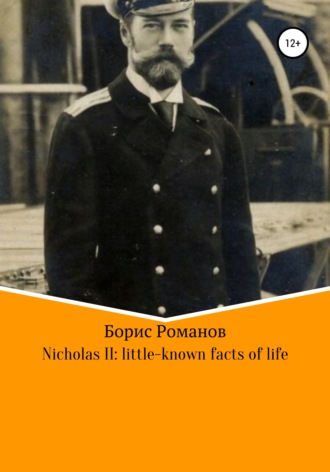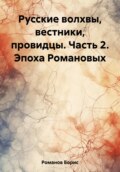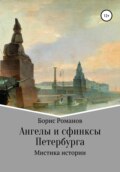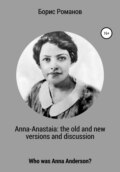
Борис Романов
Nicholas II of Russia: little-known facts of life
July 1914
…In 1909 -1914, Nicholas II applied numerous efforts to prevent the war in the Balkans. It is commonly assumed that Nicholas had done nothing to prevent the war in July 1914, in the course of the most crucial days. This is not true. For example, on July 29, two days prior to the beginning of the war, Nicholas sent a conciliatory telegram to Wilhelm with an offer to turn the dispute around Serbia to the Hague Court. Wilhelm had never replied to this telegram.
Forgotten telegram.
Quote: (Palaeologus M.G . Tsarist Russia during World War . Chapter XII. The Forgotten Tsar's telegram to Emperor Wilhelm):
"Sunday, January 31, 1915 Petrograd “Governmental Herald” publishes the text of the telegram dated 29 July last year in which Emperor Nicholas suggested that Emperor Wilhelm convey the Austro-Serbian dispute the Hague tribunal. Here is the text of the document: "Thanks for your telegram conciliatory and friendly. Whereas official message presented today by your ambassador to my minister was conveyed in a very different tone. Beg you to explain this divergency! It would be right to give over the Austro-servian problem to the Hague conference. Trust in your wisdom and friendship." – The German government has not seen fit to publish this telegram to the number of messages that are exchanged directly, both the monarch during the crisis preceding the war. … – And what a terrible responsibility assumed the Emperor Wilhelm, leaving without a word of reply sentence of Nicholas! He could not respond to an offer otherwise than agreeing to it. And he did not answer because he wanted war"
Quotes: ( from “The Evidence in the Case” by James M. Beck (p.81, p.106)
Quote (p.81): “…the Czar, with evident sincerity, suggested to the Kaiser that "with the aid of God it must be possible to our long tried friendship to prevent the shedding of blood," and proposed a reference of the question to the Hague.”
Quote (p.106): “THE SUPPRESSED TELEGRAM FROM THE CZAR. It is a curious and suggestive fact that the German Foreign Office in publishing the correspondence between the Kaiser and the Czar omitted one of the most important telegrams. The Russian Government on January 31, 1915, therefore, made public the following telegram which the Czar sent to the Kaiser on July 29, 1914:
"Thanks for your conciliatory and friendly telegram. Inasmuch as the official message presented to-day by your Ambassador to my Minister was conveyed in a very different tone, I beg you to explain this divergency. It would be right to give over the Austro-Servian problem to The Hague Conference. I trust in your wisdom and friendship."
The German Foreign Office has since explained that they regarded this telegram as too "_unimportant_" for publication. Comment is unnecessary. It thus appears that the Czar at the beginning of his correspondence with the Kaiser suggested that the whole dispute be submitted to The Hague Tribunal for adjustment. Servia had already made the same suggestion. As the world owes the first Hague Convention to the Czar's initiative, it can justly be said to his lasting credit that he at least was loyal to the pacific ideal of that great convention of the nations.”
(“The Evidence in the Case. A Discussion of the Moral Responsibility for the War of 1914, as Disclosed by the Diplomatic Records of England, Germany, Russia, France, Austria, Italy and Belgium. By James M. Beck, LL.D. Late Assistant Attorney-General of the U. S. Author of "The War and Humanity.")
On August 1 Germany had declared war on Russia.
Once again, Nicholas failed to overcome the Fate…
1915
…August 1915. The Russian Army retreated due to lack of armaments and heavy casualties. Against ferocious disagreements from his closest advisers, the General Staff and the Government, Nickolas II made up his mind to take charge of the retreating army. On August 25, Nicholas II became the Supreme Commander-in-Chief and ordered significant measures to improve the situation, including organizational and personnel changes (among other, the appointments of new Commanders of the fronts).
Winston Churchill, the British Minister of Defense in 1917, wrote:
“In accordance with the superficial fashion of our days, it is usual to interpret the royal regime as blind, rotten and capable-of-nothing tyranny. But examination of the thirty months of the war with Germany and Austria changes these false impressions and reveals the true facts…”
And then Churchill wrote about the role of Nicholas as of the Supreme Commander-in-Chief:
“…Long retreats were over. The projectile hunger was overcome. Armaments were coming in by a broad flow. A stronger, more numerous and better supplied army was on the guard of a huge front… Russia began the year of 1917 victorious and stronger than ever. Why not to honor him for this? … The burden of the latest decisions was on his shoulders… The form of government he had been implementing, which he was the lead of and which he contributed the living force to by his personal qualities HAD WON THE WAR FOR RUSSIA BY THAT TIME…”
August 1916. Noah's Ark
August 1916. Russian pilots deployed in the South of Russia near Mount Ararat were testing equipment for high-altitude flying. They saw a strange vessel of the size of a football field in a saddle: this was Noah’s Ark! An extremely hot summer melted the cirques on the mountain peaks and the Ark of Noah appeared from under the ice. The squadron commander sent a report on this historic discovery up the chain to St. Petersburg.
The report reached Nicholas II. He and Alexandra perceived this discovery as a sign of fate and, possibly, as a sign of the catastrophe approaching Russia. The Tsar ordered a big expedition to climb up Mount Ararat.
The military expedition reached its goal, took pictures and measurements of Noah’s Ark. All the expedition’s findings were lost in the revolutionary days of 1917.
Before, after and up until now, various expeditions were sent to Mount Ararat to find Noah’s Ark, but that was the only time when people saw it clearly and in full.
November 1916. Gossiping and slander about Rasputin and the royal family reached the apogee. Many believed that Empress Alexandra was holding secret negotiations with Germany through Rasputin. Though Kaiser Wilhelm and Alexandra’s German relatives did actually try to start secret negotiations on the separate peace, she had declined these proposals. Her senior brother Prince Ernie said bitterly to her: “There is no more Princess ‘Sunny’ for us,” – her German relatives had called her this name since her childhood…
The supposed treason of the Empress was already broadly discussed even at the State Duma’s podium…
Nicholas received a telegram report on this issue at the General Headquarters.
Both Nicholas and Alexandra understood that this would not be the last demand of the plotters. Nickolas decided in the favor of his family understanding only too well that this meant a catastrophe for him.
…On the night to December 17\30, Rasputin was killed in Prince Yusupov’s Palace.
What did the plotters achieve this way? A month later, they acknowledged that “nothing has changed.”
March 1917. Abdication
On February 22 (Julian), 1917, after the end of the Entente Countries’ conference in Petrograd, Nicholas II departed for the General Staff (in Mogilev) to get ready for the spring advance of the Russian Army agreed on with the Allies. Next day, riots began in Petrograd: interruptions in bread supply to the capital occurred due to extremely strong snowstorms.
By the way, not everybody knows that Russia was the only country participating in the war where no ration books (food stamps) or limitations on any food products (but sugar) were introduced.
These interruptions in bread supply were the first and only during the whole war. But the riots began immediately.
On February 26, at the Holy Synod’s meeting, Church Hierarchs refused to appeal to the people to stop the riots.
In the meantime, the situation at the fronts and in the rest of the huge territory of Russia remained stable everywhere, but in Petrograd, where a real rebellion was taking place. Some parts of the reserve squadrons even supported the rebels.
After Nicholas knew about this, he ordered to send to Petrograd the faithful squadrons from the front – up to 40 thousand people, but the Chief of the Staff General Alexeyev stopped them as they approached to Petrograd having sent deliberately false information on the allegedly normalized situation in the capital.
Nicholas understood the danger and he went to Tsarskoe Selo (his residence near Petrograd) on board of a special train, but the Provisional Executive Committee of the Duma in Petrograd took the railways leading to the capital under their control. The Tsar had to change his route and went to Pskov. He hoped to resume managing the fronts and the situation in Petrograd from there, the Headquarters of the Northwest front.
But he did not know that by that time Commander-in-Chief of the Northwest front General Ruzsky had already been the actual head of the “generals’ plot.” The chain of fatal obstacles of those days got linked…
After the very first conversation with General Ruzsky Nickolas understood that the military commanders betrayed him. His orders were not executed any more. Chief of the Staff General Alexeyev was leading secret negotiations with Commanders of Fronts seeking their support. Not all were ready to break their oath: three gave sharp refusals, but five of them did agree.
Admiral Rusin strongly opposed the abdication.
General Khan Nakhichevan strongly opposed the abdication.
General Keller strongly opposed the abdication.
Admiral Kolchak did not respond to the request of General Alekseev.
But:
Grand Duke Nicholas Nickolaevich supported the abdication
General Brusilov supported the abdication
General Evert supported the abdication
General Sakharov supported the abdication
Admiral Nepenin supported the abdication.
…The generals’ plot (conspiracy) was the last link in the chain of events and fatal obstacles which led to the overthrow of the monarchy…
Nicholas II was a man of honor; he would never expect the generals of his army, his Chief of the Staff, and the Commanders of fronts to violate their oaths!
A year would pass, and many of those including Ruzsky and Alexeyev would bitterly regret of what they had done – but it would be only too late…
…
Ruzsky demanded that Nicholas II abdicated. He showed him telegrams from Commanders at the Fronts supported the idea of his abdication. He also withheld from Nicholas II other opinions (against abdication).







